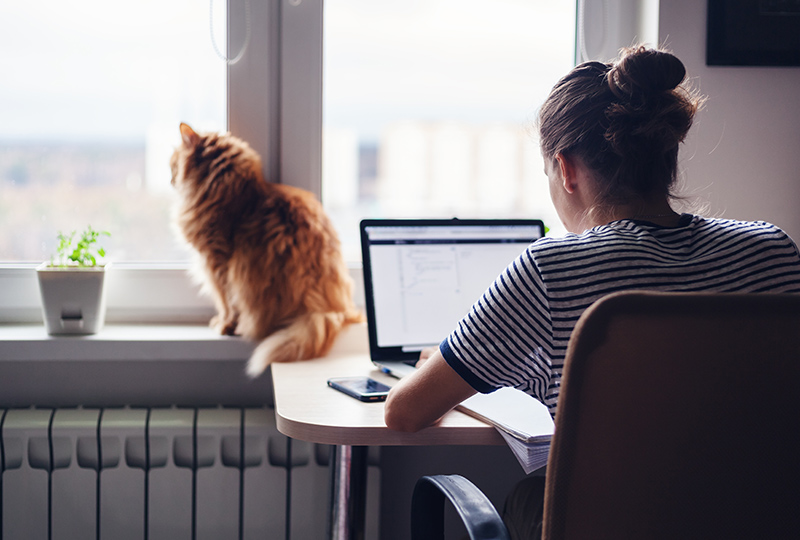
Many opinions have been spewn out about the benefits of teleworking these past few months. However, there can also be too much of something. After the burn-out and fade-out now the team-out is slowly creeping in. Team-out refers to the loss of connection and vibe with the rest of the team because of extended periods of teleworking. This could potentially lead to harmful side efects such as hightened stress levels, a drop in motivation or worse.
No longer an exception
The fact that teleworking has become a vital part of business operations, thanks to good ol’ Corona, is a good thing. However, there is downside to this : extended periods of teleworking can lead to serious side effects. This is true now more than ever, seeing as – according to statistics from VIAS – currently 1 out of 5 teleworkers work 100% from their home office.
If the balance between home life and office work is off, some employees experience feelings of isolation, lack of structure and support. This could imply employees no longer really know what is expected of them. That feeling could then further lead to stress, a drop in productivity/motivation or a rise in insecurities about their own abilities as a consequence.
This makes sense, seeing as people are social creatures. Even at the workplace contacts and physical presence is of utmost importance. It is needed as it strengthens cohesion, people can share information and knowledge or even a cup of coffee. Both employees and employers benefit from doing both teleworking and working at the office.
Bare necessities
But what is the right distribution key ? The Flemish consultation office Serv states that 2 days a week of telework would be ideal. Otherwise the downsides outweigh the positive elements. I personally prefer a more individualistic approach, starting from the self-determination theory, a macrotheory about human motivation. According to this theory, people function optimally and feel good when their three psychological basic needs are met : connection, competence and autonomy.
This is exactly where the weak spot of extended teleworking lies. Videocalls can, up to a certain extent, fulfil the need of connection, but no digital contact could ever replace real, physical contact. The feeling of being competent can also come under pressure because of all this teleworking. Not everyone feels at ease living in this digital era. Those who feel less at home with this way of working will automatically withdraw. Finally, the experience of autonomy is connected to self-determination. Depending on how much space an employer allows, an employee could feel too free or too controlled.
Virtual check-in
As an employer it is crucial during telework to safeguard both the collective as the individual well-being and help prevent team-outs. During regular virtual check-ups he/she can inquire about the emotional wellfare and work on connection. Depending on the culture within a team or organisation this can happen in many different ways. Some organisations make use of an ‘internal weather forecast’, in which colleagues state one by one how ‘cloudy’ or ‘sunny’ they feel. Another option is the ‘compliment shower’ in which colleagues give sincere compliments to a team member for 1 minute. This will undoubtedly fuel someone’s energy levels, even if done digitally.
If an employee seems to be nearing a team-out, then the employer needs to connect and talk proactively. Does Mark feel like the victim of a ‘meeting culture’ ? Is Dominique wasting away at her lonely home office ? Are there no ends anymore to Ella’s working hours ? Then it’s up to THEM to voice their concerns. Often times those colleagues will come up with solutions during an open conversation. Listen and support when necessary. This way having a buddy system at work proves to be useful : two colleagues can pay extra attention to each other.
Next to the online check-ups there need to be preset times in which all team members meet in real life. This way the working space truly becomes a meeting place. Bring croissants or provide a fresh fruit dish during these moments, the group dynamics will take care of the rest.
Source: Bart Vriesacker, Prevention Advisor Pyschosocial Well-Being, blog Mensura 12/10/20